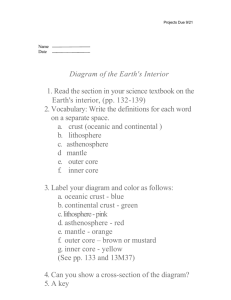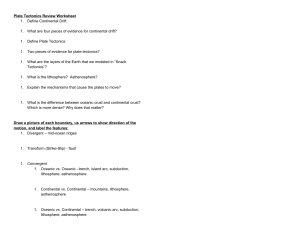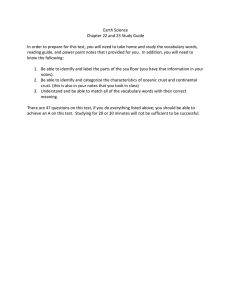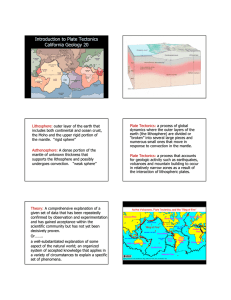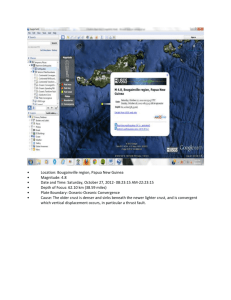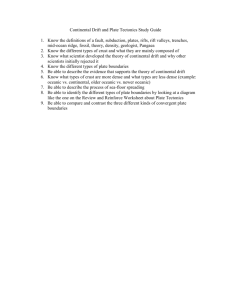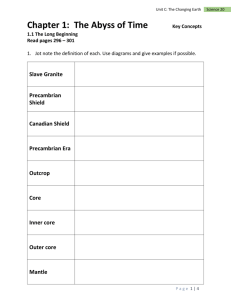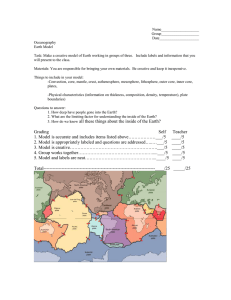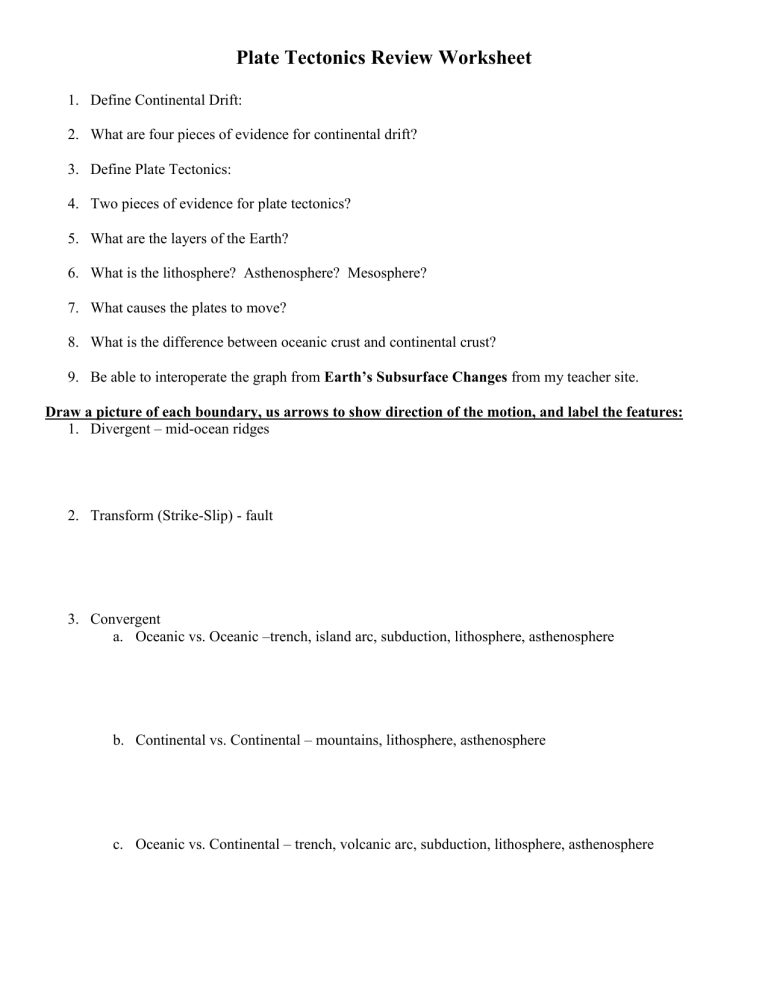
Plate Tectonics Review Worksheet 1. Define Continental Drift: 2. What are four pieces of evidence for continental drift? 3. Define Plate Tectonics: 4. Two pieces of evidence for plate tectonics? 5. What are the layers of the Earth? 6. What is the lithosphere? Asthenosphere? Mesosphere? 7. What causes the plates to move? 8. What is the difference between oceanic crust and continental crust? 9. Be able to interoperate the graph from Earth’s Subsurface Changes from my teacher site. Draw a picture of each boundary, us arrows to show direction of the motion, and label the features: 1. Divergent – mid-ocean ridges 2. Transform (Strike-Slip) - fault 3. Convergent a. Oceanic vs. Oceanic –trench, island arc, subduction, lithosphere, asthenosphere b. Continental vs. Continental – mountains, lithosphere, asthenosphere c. Oceanic vs. Continental – trench, volcanic arc, subduction, lithosphere, asthenosphere Plate Tectonics Review Worksheet 1. Continental Drift: A theory proposed by Alfred Wegner that said all continents were once joined 300 million years ago in a single land mass called Pangaea. Over time the continents moved to their present day locations. 2. What are four pieces of evidence for continental drift? Fossils, puzzle fit, glacial grooves, rock strata, mountain belts 3. Plate Tectonics: Plate tectonics is the theory that explains how large pieces of the earth’s outermost layer, called tectonic plates, move and change shape. 4. Two pieces of evidence for plate tectonics? Locations of earthquakes and volcanoes show the plate boundaries and ocean floor features. 5. What are the layers of the earth? Inner core – Iron Fe, outer core, mantle, crust – oxygen O and silicone Si 6. What is the lithosphere – Solid outer layer of the earth that consists of the crust and the rigid upper portion of the mantle. What is the Asthenosphere - the soft layer of the mantle on which the tectonic plates move. What is the Mesosphere – the strong lower part of the mantle between the asthenosphere and the outer core. 7. What causes the plates to move? Convection currents in the mantle 8. What is the difference between oceanic crust and continental crust? Oceanic crust is denser, younger, and thinner than continental crust. 9. Be able to interoperate the graph from Earth’s Subsurface Changes from the wiki. Draw a picture of each boundary, us arrows to show direction of the motion, and label the features: 10. Divergent – mid-ocean ridges 11. Transform (Strike-Slip) - fault 12. Convergent a. Oceanic vs. Oceanic –trench, island arc, subduction, lithosphere, asthenosphere b. Continental vs. Continental – mountains, lithosphere, asthenosphere c. Oceanic vs. Continental – trench, volcanic arc, subduction, lithosphere, asthenosphere
